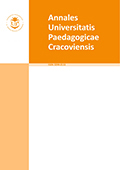Undoing the Lesbian, Detecting Queer Family and Maternity
Undoing the Lesbian, Detecting Queer Family and Maternity
Barbara Wilson’s Gaudí Afternoon
Author(s): María José Chivite de LeónSubject(s): Studies of Literature
Published by: Wydawnictwo Uniwersytetu Komisji Edukacji Narodowej w Krakowie
Keywords: detective fiction; Barbara Wilson; queer representation; queer identity; queer family
Summary/Abstract: Although published in the heyday of a consolidated tradition of lesbian detective novels, Barbara Wilson’s Gaudí Afternoon (1990) moves ahead of it as it reworks the lesbian figure as cultural sign—a stable set of lesbian stereotypes which, despite their problematic otherness within heteronormative identity, have become static and politically correct within the lesbian field of vision. Parodically echoing Dorothy Sayer’s Gaudy Night (1935), Wilson’s novel stages a disquieting dislocation of the genre’s strongly encoded investment in heterosexual gender politics—and its misogynist, biology-centered politics of representation—which eventually runs into a serious recasting of genre roles, figures, meanings and narrative gestures overflowing either detective and lesbian patterns. Gaudí Afternoon thus provides clear instances of this joint genre-gender transgression to the point of anticipating what Gill Plain has pointed out as “shifting paradigms,” or cutting edge crime narratives moving into a border zone of indeterminacy which mutates into queer—open, dynamic, cross-border, excessive—apprehensions of law, crime and criminality, society and its interpellated state institutions. Thus queered, lesbian detective fiction mutates into an active signifier which is here envisaged from Butler’s performative theory of citational practices and “corporeal styles of gender.” In this light, Gaudí Afternoon not only re-appropriates standard gender conventions and stock corporeal styles by positing trans-gender and trans-genre proposals within symbolic spaces and political agendas. Above anything else, it invites imaginary spaces and formulae intent on reconciling queer agency and the parodic citation of two of its most paradigmatic patriarchal structures, family and maternity.
Journal: Studia Anglica
- Issue Year: 222/2016
- Issue No: 6
- Page Range: 62-70
- Page Count: 9
- Language: English

